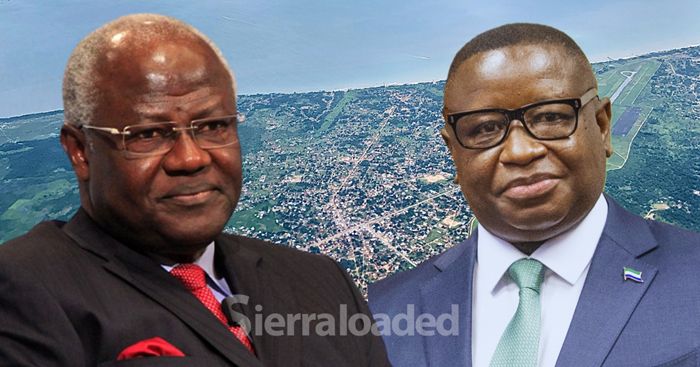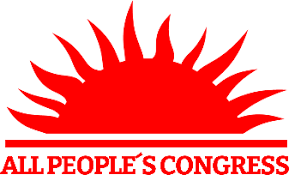By Mackie M. Jalloh
In a press briefing at the United Nations Security Council, President Julius Maada Bio issued a strong statement regarding the legal situation of former President Ernest Bai Koroma, who stands accused of involvement in a coup attempt to overthrow the Sierra Leonean government. The allegations against Koroma have sparked significant controversy, with the former leader currently residing in Nigeria, raising concerns about his potential return to face justice.
The issue of Koroma’s whereabouts and his alleged role in the coup plot has been a topic of intense debate both within Sierra Leone and the international community. President Bio, addressing the situation head-on, confirmed that Koroma remains in Nigeria and assured that the Sierra Leonean government is committed to ensuring that justice is served.
“President Koroma is currently in Nigeria, and all necessary steps to make sure that justice is served as far as everybody that is concerned in the alleged coup plot will be enforced,” President Bio stated emphatically. His words underline the administration’s determination to see the case through, despite the complexities involved in bringing a former head of state to trial.
Ernest Bai Koroma, who led Sierra Leone from 2007 to 2018, is facing a serious legal battle, with charges that include treason, misprision of treason, and harboring, all connected to the attempted overthrow of President Julius Maada Bio’s government on November 26, 2023. These charges carry severe penalties, and the case has gripped the nation, as many citizens await the unfolding of legal proceedings.
The situation took a dramatic turn earlier this year when Koroma, citing urgent medical needs, sought permission to leave Sierra Leone for treatment in Nigeria. On January 17, his legal team successfully argued for a ninety-day allowance for Koroma to receive the necessary medical care abroad. The court granted this request, allowing him to depart Sierra Leone under the condition that he would return to face trial at the conclusion of his treatment.
However, the ninety-day period has long since expired, and Koroma has yet to return to Sierra Leone, prompting concerns and criticism from various quarters. Some view his continued stay in Nigeria as a deliberate evasion of justice, while others suggest that his health issues may be more serious than initially reported. This ambiguity has only added to the tension surrounding the case, with the government under increasing pressure to act decisively.
President Bio’s latest comments suggest that the government is prepared to take whatever steps are necessary to bring Koroma back to Sierra Leone to stand trial. This could involve diplomatic efforts with Nigerian authorities, legal maneuvers, or potentially more forceful measures if deemed necessary. The president’s firm stance indicates that the administration views this case not just as a matter of legal importance, but as a crucial issue of national integrity and the rule of law.
The charges against Koroma are severe, and if found guilty, he could face significant penalties, including a lengthy prison sentence or even more severe consequences. The case has drawn international attention; with many watching to see how Sierra Leone’s justice system handles the trial of a former president.
As the situation develops, the stakes are high for all involved. For President Bio, the case represents a test of his administration’s commitment to justice and the rule of law. For Ernest Bai Koroma, it is a fight for his freedom and legacy. And for the people of Sierra Leone, it is a moment of reckoning that could have lasting implications for the nation’s political future.
The coming weeks and months will likely see further developments as both sides prepare for what could be one of the most significant legal battles in Sierra Leone’s recent history. The government’s actions, and Koroma’s response, will be closely scrutinized as the country seeks to navigate this complex and highly charged situation.













